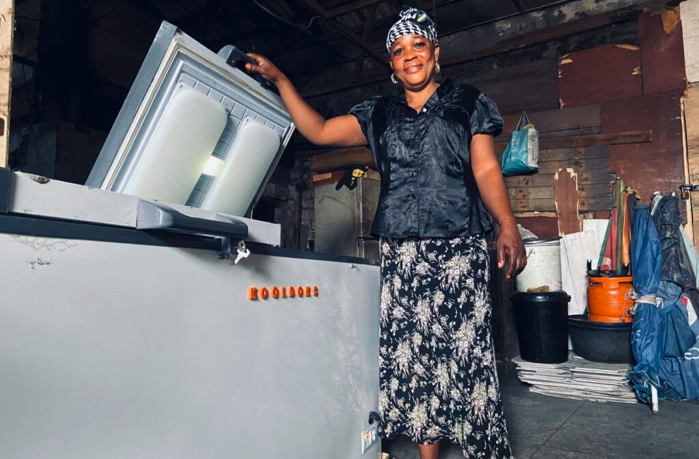- The Beyond the Grid Fund for Africa (BGFA) has signed two new agreements in Uganda to establish new mini-grids and scale up distribution of solar-powered refrigerators in the country.
- Access to electricity and off-grid refrigeration will allow small and medium-sized businesses in rural communities to establish new ventures to support economic development in these areas.
The latest BGFA agreements have been signed with Koolboks Ltd and Equatorial Power Ltd to scale up access to solar-powered cooling solutions and develop new mini-grids. In total, EUR 3 million will be provided in results-based financing from BGFA to the two new investees. It is expected that the financing will mobilise up to EUR 6.5 million in additional co-financing over the coming four-year implementation period.
Koolboks is a company that provides solar-powered off-grid refrigerators and freezers. The company was established in 2018 and operated in Kenya and Nigeria prior to registering its Ugandan subsidiary in 2023. Its aim in Uganda is to provide sustainable off-grid cooling solutions for small and medium-sized enterprises in rural areas, for example food shops and restaurants, allowing them to increase sales and boost productivity. With the financial support of BGFA, Koolboks plans to expand its business operations across Uganda, including the underserved districts of Ngora and Buyende in the eastern part of the country. The aim is to establish and service up to 3,300 energy service subscriptions in the coming four years.
“The BGFA financing will enable us to empower small and medium enterprises in rural areas by providing sustainable cooling solutions to boost productivity and income, while reducing food waste and greenhouse gas emissions. With our innovative technology and affordable PAYGO model, we are committed to bringing clean energy access to underserved communities across the country,” says Ayoola Dominic, Co-founder and CEO at Koolboks.
The Koolboks freezer can also function as a refrigerator and has an integrated ice battery, which enables long-term cooling when electricity is unavailable. The freezers, which can be installed with three different solar panel sizes, include integrated PAYGO technology as well as features such as LED bulbs to light shops, USB ports to charge phones and Internet of Things (IoT) technology to provide data on temperature and battery level.
The mini-grid developer Equatorial Power was established in Uganda in 2017. With the results-based financing from BGFA, the company is planning to establish 10 mini-grids on islands in Lake Victoria, with some 430 kWp solar PV capacity to be installed to service the surrounding rural communities. The aim is to establish some 3,100 energy service subscriptions by the end of the project implementation period. In addition to green power, the company will also provide off-grid appliances such as refrigerators and electric cookers to the communities.
“Equatorial Power is proud to accelerate energy access and promote productive energy use in Uganda. As we embark on this journey, fuelled by the spirit of innovation and collaboration, we are not just building infrastructure – we are building futures. With each connection made possible by the BGFA programme, we are one step closer to realising our mission of bringing light, opportunity and prosperity to every corner of Sub-Saharan Africa,” says Dario Fallara, Head of Business Development at Equatorial Power.
Equatorial Power has already installed one mini-grid with a capacity of 600 kWp in Uganda, on Lolwe Island in Lake Victoria, which has been operational since 2020. In addition, the company is working on developing the first grid interconnection project in Kiwumu, Mukoko district. Equatorial Power initially plans to operate the mini-grid as a standalone system and later connect it to the national grid. The company also operates mini-grids in the Democratic Republic of the Congo and Rwanda.
“By supporting these two companies to scale up their businesses and operations in Uganda, we are able to reach underserved rural areas and support sustainable economic development as well as gender equality in these communities,” comments Tina Möller, Programme Manager at Nefco.
Author: Bryan Groenendaal















